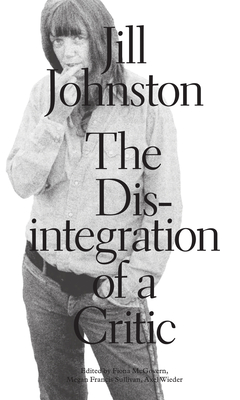
Jill Johnston--cultural critic, auto/biographer, and lesbian icon--began her career at the Village Voice as a critic of dance and performance, writing about Merce Cunningham, Martha Graham, the activities at Judson Church, Allan Kaprow and Happenings, Fluxus, and the downtown New York art scene. The column eventually became more personal than critical, allowing her to discuss her life, her sexuality, and her politics. This book brings together thirty texts Johnston wrote for the Voice between 1960 and 1974, beginning with her early dance coverage and continuing though the time when, as she put it, the column moved "from the theatre of dance and happenings toward the theatre of my life."
As Johnston abandoned an objective critical standpoint, her column interwove forms and formats, and political, literary, art-historical, and critical perspectives, taking turns and loops, reflecting its time and contexts--with the one constant being Johnston's unmistakable, witty, intimate voice. As a person and as a writer she pioneered a model that not only challenged notions of writerly appropriateness but also performed and created a new lesbian identity.
T
his collection also includes texts by Ingrid Nyeboe, Johnston's long-time partner and spouse; Bruce Hainley; and Jennifer Krasinski. An appendix collects material related to a 1969 panel discussion organized by Johnston (featuring Andy Warhol, Ultra Violet, and Carolee Schneemann, among others) that gives this volume its title: "The Disintegration of a Critic: An Analysis of Jill Johnston."
Copublished with Bergen Kunsthall
member goods
listens & views

MUSICAL PORTRAIT OF WOLFGANG HUFSCHMIDT ...
by MUSICAL PORTRAIT OF WOLFGANG HUFSCHMIDT / VARIOUS
COMPACT DISC$14.75






